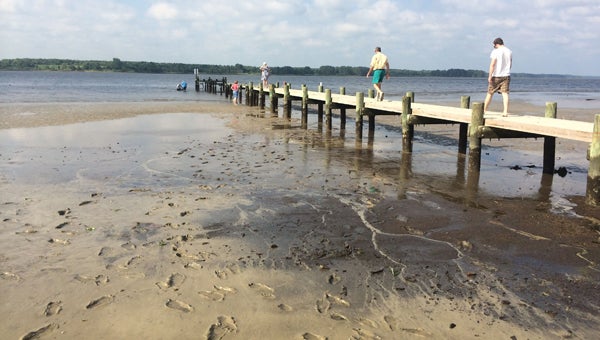Hurricanes may have beneficial effect on sounds
Published 11:14 am Friday, July 11, 2014
Several years ago a meeting of the technical committee of the Albemarle-Pamlico Estuarine Study (APES) met to discuss what effects hurricanes might have on our sounds and rivers. The Duke University representative on the committee mentioned that hurricanes frequently have beneficial effects on our waterways, as well as damaging effects from storm surges and wind.
The APES group recognized that our rivers and sounds make up the second largest estuarine body in America (Chesapeake Bay is the largest). The Albemarle and Pamlico Sounds are also very shallow in nature and, with a relatively low amount of fresh water entering the area from the west, there‘s very little turnover. The water in the sounds sort of sloshes around and only a little of it actually leaves through ocean inlets. The water builds up nutrients brought into the sounds and rivers from sewage, industry, agriculture and run-off from construction projects.
Personally, I don’t remember any better example of the beneficial effects of hurricanes than what I saw the morning after Hurricane Arthur.
Many of us that rode-out Arthur by sitting tight watched and worried as the hurricane’s winds drove the water in the coastal area higher and higher. Large wind-driven waves splashed up over bulkheads and flooded marshes throughout the area. Waves also stirred up the bottom, mixing all kinds of things into the now muddy water.
When we finally went to bed and prayed that the rising waters didn’t get high enough to invade our homes — as Hurricane Irene did several years ago — we didn’t know exactly what to expect when we awakened after the storm had passed. Small groups of residents who elected to ride out the storm gathered at the banks of South Creek and wondered where all the water that had been very high the night before had went. The bottom of the creek was exposed for a hundred yards or more out to where the water ordinarily would have been chest deep. So, where did all the high water brought on by Arthur go?
Apparently, the entire high storm surge had left our waterways in a big hurry and left the Albemarle-Pamlico area through the several inlets that help to make up our Outer Banks. As the water left, it took with it what could be years of nutrient build up in the bottom of the waterways, but it also took with it tons of debris that had built up on the shores and marshes.
To quote that Duke University marine biologist, “The hurricane’s high waters and the following extra low tide have about the same effect on our sounds as you have when you flush the toilet in your house.” Hurricane Arthur literally “flushed” a lot of our coastal waters and took many of the bad things that might have built up over the years out into the Atlantic Ocean.
Arthur also left a lot of floating debris washed up at the high tide line of our waterways, where it can be picked up and disposed of by burning or taken to garbage dumps. This floating debris also contained items that locals often can reclaim such as iceboxes and plastic lawn chairs.
We older Tar Heels are quite familiar with how Nags Head was given the name. The local Outer Bankers used to tie a lit lantern around a horse’s neck and walk the horse along the beaches during a storm to try and lure some unsuspecting passing ship onto the beaches. After the “suckered” ships went aground and broke up, the Nags Headers salvaged timbers and other valuables and literally built their houses from the salvaged items. Some Down-Easterners (Coasties) still patrol the high marshes and woodlands near rivers and creeks after a storm looking for valuables such as duck decoys, boat cushions and other valuable floating debris. I guess that these modern day beachcombers are a lot like the Nags Headers of the old days.
We are thankful that Arthur left us with a minimal amount of damage and, in some ways, flushed our waterways.
As the hurricane’s surging waters left our sounds via inlets such as Oregon Inlet, it must have looked like a big mountain stream, as it took a lot of undesirables from our area into the ocean. I suppose that “flushing the sounds” is about as good a term for this phenomenon as we can think of.






